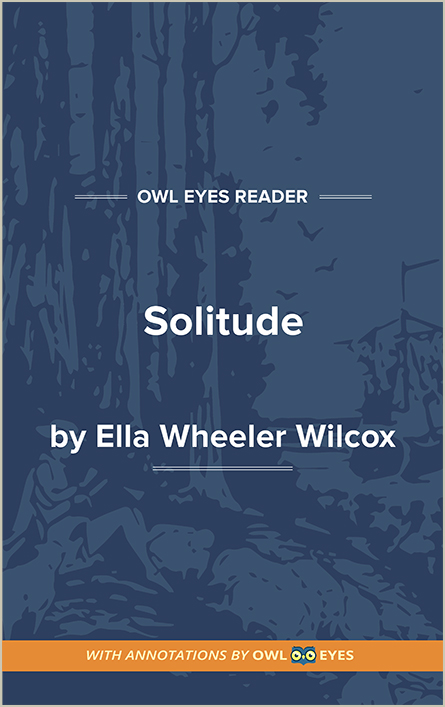Analysis Pages
Themes in Solitude
Themes Examples in Solitude:
Text of the Poem
🔒"But one by one we must all file on..." See in text (Text of the Poem)
"But no man can help you die...." See in text (Text of the Poem)
"you..." See in text (Text of the Poem)
"trouble enough..." See in text (Text of the Poem)
"sad old earth..." See in text (Text of the Poem)
"alone..." See in text (Text of the Poem)
"Laugh, and the world laughs with you..." See in text (Text of the Poem)
"alone..." See in text (Text of the Poem)

